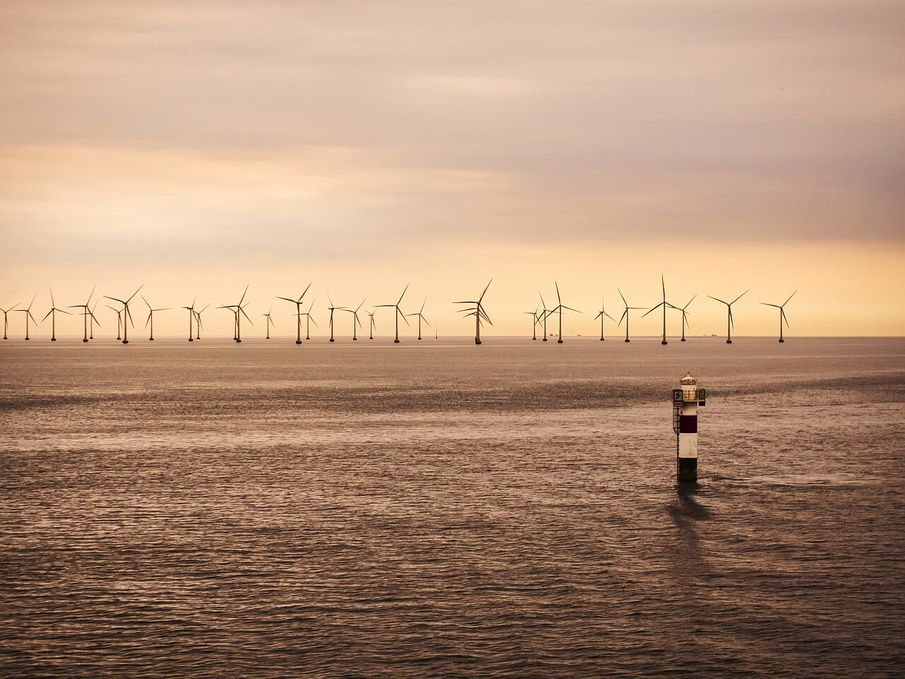The price of offshore wind has fallen over 60% in just 4 years through the government's renewable energy ‘contracts for difference’ scheme
The government announced the results of its latest CFD AR3 auction this morning, with 6GW of new renewable energy capacity being provided from as low as £39.65 per megawatt-hour (MWh). This represents a fall of over 60% from the round 1 auction in 2015, where offshore wind projects required a strike price of £119.89 per MWh.
CFD (Contracts for Difference) allocation auctions are administered by government-owned company, the Low Carbon Contracts Company (LCCC). They work by agreeing a strike price between the LCCC and energy project developers.
If the wholesale market price of energy falls below the strike price, the LCCC will top it up with a support payment. Conversely, if the market price is above the strike price, the generator pays the LCCC the difference. This allows a developer to plan a project with some confidence of their likely rate of return, and so, helps to encourage the deployment of new renewable technologies.
This auction is great news, and part of the international trend for falling renewable energy costs, Offshore wind will help us to reach our net zero targets cost effectively
The new projects are due to be delivered over the course of 2023/24 and 2024/25, with the majority of the capacity (3.6GW) coming from three phases at Doggerbank, a shallow area of the North Sea which sits around 78 miles off the east coast of Yorkshire.
This new CFD price of £39.65/MWh is less than half the £92.50/MWh strike price agreed for Hinkley Point C which is currently in development in Somerset, and is also due to come online in 2025.
Commenting on the results, energy market consultant, Thomas Edwards, said: “This auction is great news, and part of the international trend for falling renewable energy costs, Offshore wind will help us to reach our net zero targets cost effectively. However there are still important challenges to overcome to reach our targets, especially around network capacity, financing and balancing.”
However there are still important challenges to overcome to reach our targets, especially around network capacity, financing and balancing
The government claims that “for the first time renewables are expected to come online below market prices and without additional subsidy on bills.”
Announcing the auction results, Prime Minister Boris Johnson said:
“The support we’re announcing today will mean that over 7 million more homes will be powered by renewable energy as we decarbonise our energy system – crucial as we continue on the road to net zero emissions by 2050.”
These results come as young people take to the streets around the world to demand action on climate change, and many would demand swifter action.
One of Happiful’s own software engineers, David Bailey, is out today joining the strikes and he thinks we should be aiming to eliminate emissions by 2025, some 25 years sooner than the government’s target.
“This announcement is positive; however, the government still has a long way to go before making real progress on reducing climate change,” he says. “The UK still spends £10.5 billion per year on subsidising fossil fuels, while there aren't enough incentives for people to switch from cars to more environmentally friendly methods of transport, such as cycling and public transport, or switch their homes to renewable energy.
“In order to reduce our emissions to net zero by 2025 - after which point, global average warming is likely to exceed 1.5°C - we need to divert public money away from fossil fuel subsidies, and invest as much as possible in these areas instead.”
look out for my sign on the news for #climatestrike London pic.twitter.com/rPFfyJTDl7
— David Bailey 🏳️🌈 (@davidbailey00) September 20, 2019
While there is so much more to be done, it is great to see these changes in our energy market. Whether you are a large organisation taking the steps to reduce your impact on the environment, or if you are an individual, doing what you can to protect the planet, it is our home and we need to do what we can to look after it.
“Our hotter planet is already hurting millions of people,” say Global Climate Strike. “If we don’t act now to transition fairly and swiftly away from fossil fuels to 100% renewable energy access for all, the injustice of the climate crisis will only get worse.”


Comments